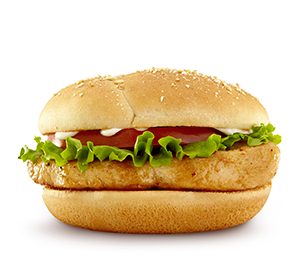McDonald’s USA on March 4 announced new menu initiatives which include only sourcing chicken raised without antibiotics that are important to human medicine. In addition, its restaurants in the United States will offer customers low-fat white milk and fat-free chocolate milk from cows that are not treated with rbST, an artificial growth hormone.
“Our customers want food that they feel great about eating – all the way from the farm to the restaurant – and these moves take a step toward better delivering on those expectations,” stated McDonald’s USA President Mike Andres.
The Oak Brook, Illinois-headquartered company says that it has been working closely with farmers for years to reduce the use of antibiotics in its poultry supply. This new policy supports its Global Vision for Antimicrobial Stewardship in Food Animals initiative introduced this week, which builds on the company’s 2003 global antibiotics policy and includes supplier guidance on the use of antibiotics in all food animals.
 McDonald’s Premium Grilled Chicken Classic SandwichAll of the chicken served at McDonald’s approximately 14,000 US restaurants comes from US farms that are working closely with the company to implement the new antibiotics policy to the supply chain within the next two years.
McDonald’s Premium Grilled Chicken Classic SandwichAll of the chicken served at McDonald’s approximately 14,000 US restaurants comes from US farms that are working closely with the company to implement the new antibiotics policy to the supply chain within the next two years.
“McDonald’s believes that any animals that become ill deserve appropriate veterinary care and our suppliers will continue to treat poultry with prescribed antibiotics, and then they will no longer be included in our food supply,” said Marion Gross, senior vice president of McDonald’s North America Supply Chain.
While the company will only source chicken raised without antibiotics important to human medicine, the farmers who supply chicken for its menu will continue to responsibly use ionophores, a type of antibiotic not used for humans that helps keep chickens healthy.
“If fewer chickens get sick, then fewer chickens need to be treated with antibiotics that are important in human medicine. We believe this is an essential balance,” said Gross.





